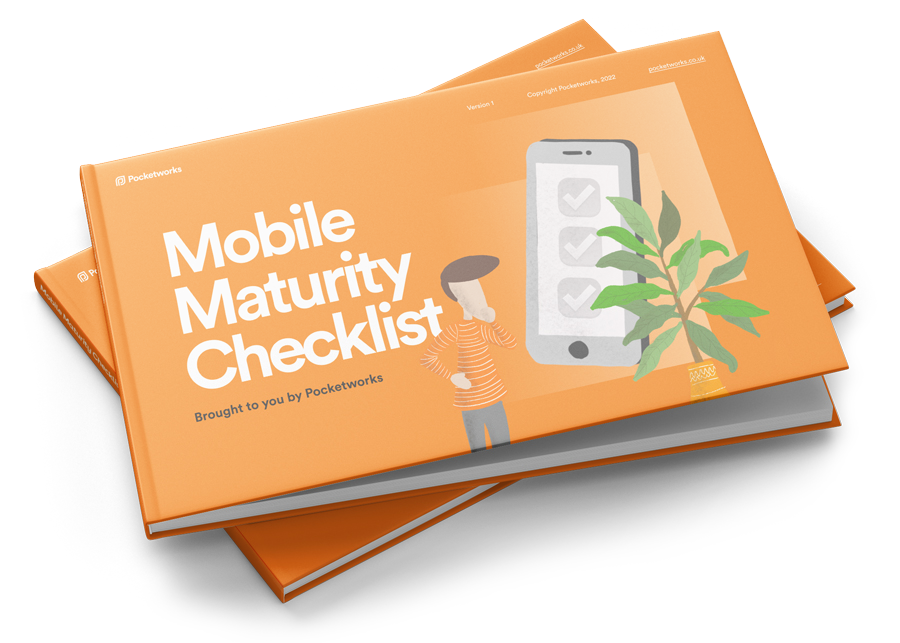If you're looking to develop an app, you'll probably have heard the word Agile used in articles and on app developer websites. The problem is, this word is often poorly understood, or sold as a set of practices that don't even bring the real benefits.
To help you figure out if agile is worth considering, this post looks at a few areas. What does an agile project look like? How does it affect how your app is developed? How will you have to change how you go about your work? Or your relationship with your board?
Let's take a look at the effects agile will have. I'll start with a summary of what agile means, at least from my own experience developing apps and digital plastforms for mid-sized businesses.
So, what is agile, really?
I was thinking about this again just the other day, three years after first writing this post (it's 9th Sept 2025 right now, for context). I'm thinking agile isn't black and white, it's a bunch of sliding scales where you can pick a number from one to 10. Here are the sliders.
| Scale | Less Agile | More Agile |
| Planning and Documenting | Plan the whole project in detail upfront, with detailed requirements. | Scope the project, but start the project with little detail and documentation. Start, then explore detail as you go. |
| Releasing to Customers | Build the whole project and then ship to customers for feedback. | Build a small piece, show to a few customers and stakeholders, get feedback, then repeat. |
| Scope Flexibility | Scope changes go through formal approval and need new planning and detailed documentation. | Project leader can change scope whenever needed, but needs to take other things out to prevent budget and time overruns. |
| Outcomes over Outputs | The project exists to deliver the requirements. The board asks "what have we delivered?" | The project exists to create customer and business outcomes. The board asks "what results have we achieved?" |
| Budgeting | Every feature or scope item has an estimated budget, and the goal is to stay within it. | Every item has a rough estimate, which is re-estimated as new information comes to light. The business decides if the outcomes are worth the investment for any given scope item. |
| Process Control | Processes are set in stone, and maturity is measured by team ability to follow them. | Processes are adaptive, and frequently revisited. Maturity is measured by the teams ability to adapt to the environment. |
| Tooling | Tools are set in stone, and teams must use what is prescribed. | Tools can be changed, and the team are empowered to select tools that help them achieve better outcomes and move faster. |
Now let's take a look at how this impacts you, and if it's right for you.
You get started faster, but no specification might throw you
Agile does away with big upfront specifications. This are documents that outline exactly how your app will work. Not having this can be very unnerving for some people, explored below.
Why be less agile?
- You can see your entire idea illustrated before spending the bigger bucks on developing it
- You can sleep at night knowing your vision will happen, because the spec says so
- You'll get a cost and timeline, so you know what you're getting for your money and when
So, NOT doing agile is great, right? Well, it can be. But an agile app development company will help you in different ways.
Why be more agile?
- You can move faster without all that documentation to write, review and amend
- You can learn if you're ideas are market-fit in 2-6 weeks, rather than 6-12 months
- You can save time with face-to-face communication, more efficient than emailing or writing
Organisations that switched to agile did so because, for them, learning is the most important thing. More specifically, the quicker you get feedback from your target audience, the less likely you go down the wrong path. Many apps are under development for 6-12 months, burning tons of budget, only to be poorly received by the market. Agile is about fixing this by removing wasteful practices and getting feedback from stakeholders and customers as quickly as possible.
You'll ship more often, but there is no set-in-stone plan
With agile, you ship working software more often. This is because the process is broken down into smaller pieces, often called iterations or sprints. These are typically 1-6 weeks long. This can be uncomfortable to some so there are times when being less agile is a good idea.
Why be less agile?
- You don't have the nerve-wracking experience of showing fledgling ideas to customers
- You get a polished product at the end, you won't see the "building site" in progress
- You already have a big plan of what to build, so you can relax knowing it will happen
I'll admit, I struggled to write those benefits because I personally have never seen that work. However, in theory, there is less management overhead and stress. Agile brings different benefits:
Why be more agile?
- You get customer feedback very fast, so good ideas can be honed into great ideas
- You are free to set priorities based on what you learn, there is no big plan to mess up
- You can focus on goals and outcomes, because there is no delivery plan to worry about
You might be thinking that agile is just "winging it" but the last point above is the most important one; goals and outcomes are at the heart of agile and are part of every iteration. Would you rather have a process that is optimised for delivering software, or one that is optimised for delivering software that achieves your goals?
The tools and processes don't matter, but it might feel chaotic
There are only four bullet points in the agile manifesto, and one of them is: Individuals and interactions over processes and tools. This means that it's not that important if you pick Notion or JIRA. Or it's not that important if your processes aren't followed to the letter.
This doesn't work for everyone though, sometimes tools and processes are important:
Why be less agile?
- You're app developers are building to specification so you don't need highly interactive discussions
- Your organisation mandates a set of tools, so you cannot just pick what works for the people doing the work
- You personally believe that, for your project, the tools will have a bigger impact than team dynamics
Agile organisations can still value tools and processes, but it's more likely they will select them because they help facilitate human interaction and actually shipping software.
Why be more agile?
- You can adapt your process to the skills of the individuals, and you trust the people doing the work to make safe choices
- You can enable teams to pick tools that make them happy and productive, which causes less resentment
- You can retrospect on both of these things often, meaning if something isn't working you just fix it rather than follow the rule book
As you can see, the agile approach is going to be more adaptable. One month you might be doing things one way, and the next month the team may have decided it wasn't optimal. This performance tuning may seem chaotic from the outside. You have to be comfortable with change.

